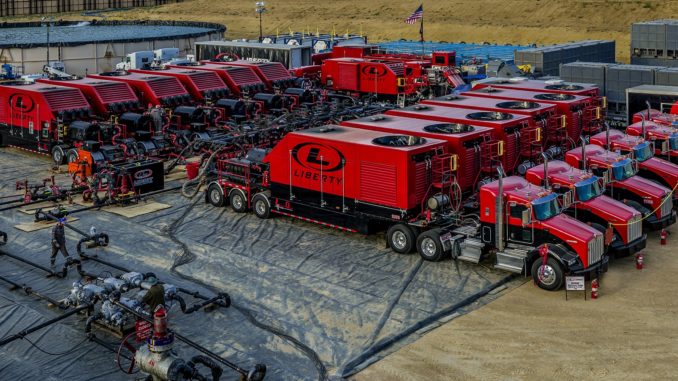
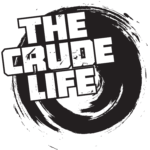
Ron Gusek, president, Liberty Oilfield Services
Gusek gives an overview of the environmental image movement and ESG reporting. He said they will be releasing their first ESG report in May, which is a first for their company.
The energy industry in transition is discussed in detail from a variety of perspectives. Gusek talks North Face, pandemic, shareholder responsibility and public relations in oil and gas.
Jason Spiess: Hello folks and welcome to The Crude Life’s official video channel. I’m your host, Jason Spiess. Please like, share, and follow this channel. You can also find us on our other affiliate pages on LinkedIn, Facebook, YouTube, Twitter, and Instagram, and of course you can always find us at thecrudelife.com. Now, please enjoy this exclusive interview.
Ron Gusek: Ron Gusek, Liberty Oilfield Services.
Jason Spiess: Thank you for joining the program here today. We’re-we’re going to talk a little bit about Keep America Beautiful because it is the month of April, and one of the arguments I’ve made for a long time, to even where I’ve won an environmental tournament on this platform, which is the oil and gas industry is the leader in the environmental movement, has to do a lot with innovation, has to do a lot with their community building, and it has to do a lot with their actual working with government officials. Which is kind of ironic that they seem to be up against the wall now – their backs – when it comes to what’s known as an ESG movement. Uh, Mr. Ron Gusek of Liberty Oilfield, how are you doing today?
Ron Gusek: Doing very well, thanks. How are you today, Jason?
Jason Spiess: Uh, doing fine and thank you for joining us today to talk about this. And, you know, I-I don’t want to necessarily talk about ESG because I’m not really even sure that everybody’s landed on a consensus that, uh, that’s the wave of the future, but I don’t want to also ignore it. But I do want to talk about how oil and gas builds communities and how it’s been helping the environmental movement and how it has been working with government officials over the years, so if you wouldn’t mind, uh, we kind of have a little conversation about that.
Ron Gusek: That sounds great. Uh, you know, I certainly think a little bit to be determined how that, uh, plays out in the future but, you know, I-I think regardless of-of what metrics we end up measuring ourselves on as an industry, you know, we have a— I know oil and gas can, are going to play a big role in our world for a long, long time to come and I think we have a responsibility as an industry to produce every molecule of oil and gas as cleanly and efficiently as-as-as we can with consideration for what that means for the cost of energy. You know, we, it is the enabler of life as we know it today and-and, you know, while-while there are solutions to all kinds of things, uh, at the end of the day, we need energy to be a sustainable resource for all of us and so we have to find that balance.
Jason Spiess: One of the things that we’ve embraced here at The Crude Life and one of the, uh, Bakken Barbecues example that comes to my mind, because it’s coming up in a few months, is, you know, it’s open to the public and we raise money for Make-A-Wish and there’s a network of women empowering women and there’s a backpack pro-program as well for kids in education, so it’s-it’s nice to see how communities can really get built by oil and gas companies and the service companies, the supply chains. And the part that I’ve always enjoyed is they really kind of allow the communities to build their own little culture with it. It’s almost like they give them a nice base and then the communities can-can take it over from there. Um, talk to me a little bit about how you view how the oil and gas community companies and their relationship with the communities.
Ron Gusek: Oh, you know, I think that’s one of the wonderful things about our industry, and-and unfortunately, I think one of the things we don’t get enough credit for. I-I don’t know a member of the oil and gas community who is not active in some way, shape, or form in their community whose companies are not out there trying to make the places they live and work better for everybody around. And I-I just posted on LinkedIn yesterday, uh, the API, uh, Chili Cook-Off up in the block and then I was, you know, I was pleased to see they were able to make that happen in person, and I think that event raised about 45,000 dollars for some, uh, for some charities up there. It’s been a tough year. The last twelve months have been incredibly challenging, not only in oil and gas but of course across communities and-and across our nation, and so now more than ever, that support is so important to, uh, to people and so it’s great to see those events carry on, and and it’s true across the-the industry. Of course, Liberty has the privilege of working from, uh, all the way from up in Canada to, uh, the US-Mexico border and in a wide range of basins and communities. And every place we go, you see an active and engaged oil and gas community working hard to make, uh, those towns, those cities, those-those areas in which they live and work better places. And they’re out there, boots on the ground, organizing and participating in, sponsoring and fundraising for those events and-and so I-I’m incredibly proud of our industry for that. I think it’s something we do very, very well.
Jason Spiess: I have a question that I’m not sure you can answer but, um, you know, it’s very difficult a lot of times. At least, you know, in the advertising business which has, you know, been a big part of the media business for a long time so I-I-I know how that works and that’s what’s known as an intangible product, okay? And-and I’m not telling you anything you don’t know, but this is more for myself and the listeners here. But, um, when you’ve got a tangible product like oil and gas, which is a commodity, it’s a tangible commodity, and you start looking at the intangible, which really a lot of this social governance and a lot of the, um, just the whole public relations side, if you will. Um, is there even a way to quantify that or is there a way to, I guess, that companies look at that as a, uh, quantify— The only word I can come up with is quantifiable. I don’t even know if that’s right or wrong or not, but do you understand what I mean? How does an oil company integrate that into their-their day-to-day business, I guess? Because it’s, um, it’s an intangible versus the tangible is what I’m getting at.
Ron Gusek: Yeah, you know, I think I-I would come at that from two ways. I-I certainly think there’s been some attempt to quantify that just-just to give a picture to the, um, broader populace around how much work goes on in our industry in-in that space. And so, I know, for example, the Colorado Oil and Gas Association here has worked to-to bring together all of that data and-and-and try to summarize it at a high level, just to try to, you know, to use your word quantify that impact in Colorado and the communities that we work in. So, it’s, I know, I know there are some attempts to do that from an external standpoint. It’s difficult. And-and then exactly what happens with that data, you know, does it get consumed by-by people? Does it translate into benefit for our industry in terms of, uh, their perception or acceptance of-of our industry? And, uh, in a place like Colorado, I don’t know, that’s a, that’s a tough thing internally. You know, I-I think at least in Liberty’s world, you know, we are such a culture focused organization. We are so much about creating a culture in which people want to come and work and-and be with the people that they are, uh, that they are colleagues with and to make a career of it. And part of that is, you know, not only having a-a, um, a great place to come and work and a great group of people to work with, but-but to feel like that work is rewarding on multiple levels. And, you know, I-I think by virtue of working in the oil and gas industry, uh, it, you know, it’s-it’s certainly easy to feel like we deliver a huge amount of good to the world – and we absolutely do – but it’s fantastic to be able to layer on top of that the ability to give back to the community. And-and so that’s, we’ve just made that an important part of our organization and and we view the value of that in terms of of what that means to our employees and-and how that makes them, uh, feel about their ability to contribute to the community through, uh, not only their work and in oil and gas, but also what we are able to do as a company to support community organizations. So, I-I don’t know how we quantify that, but I-I think as-as believers in having a great place to work, it’s an important part of the workplace for us.
Jason Spiess: It’s complex, is what I’m, what I’m hearing. And actually, what I wrote down in my notes was, um, “amount of resources put into efforts” and-and really, that’s-that’s what we’re talking about here is that, um, there’s a lot of resources that get put into turning on the light switch and it’s, um. You know, there’s just a couple questions left with, uh, Ron Gusek, president at Liberty Oilfield Services, and one is about the, you know, kind of that-that light switch and-and how, you know, we’ve gotten to that point now, much like farming. I was just having this conversation yesterday with the North Dakota Egg director about how back in, you know, twenty, thirty years ago, the grocery store replaced the farmer in terms of the, you know, public perception. And I-I think that’s going on right now with the light switch replacing the oil and gas worker, because one of the things you mentioned early on – which I agree with – is part of a big part of our day-to-day is-is oil and gas products. And I’ve seen anywhere from ninety-six percent – so let’s just call it ninety percent – if ninety-six percent of our day-to-day lives, from our tires on our car to our toothbrushes to, you know, the cell phones that we hold in our hand, are reliant on petroleum products, it’s not going anywhere in our lifetime. So, I think that’s a fair thing to say and that’s the governance side I wanted to-to address, too. So, um, the-the— I guess where I’m going with this, number one, just kind of your reaction, your question, yours thoughts when it comes to, you know, is the light switch replacing the the oil and gas worker? And, you know, is there a little bit of a disconnect or a little bit of a PR struggle that’s happening in-in your mind and how do we fix it?
Ron Gusek: I-I absolutely think that’s the case. I-I think there is, uh, there is a real lack of understanding, uh, in-in the world around where it is that energy actually comes from. I-I think, to your point, people turn on a light switch, they expect the power to be there when-when they do that. They plug in their phone to charge it and they expect the little lightning bolt to show up in the battery there. Uh, but there’s-there’s not really a thought as to where it is that that energy is-is arriving at the wall from. And-and so, and I think we’ve we failed a little bit as an industry in that regard. I think we have, you know, just put on, put down our heads and done what we’ve done every day, which is go out there and figure out how to produce oil and gas and make sure the world has the primary energy that it needs, uh, without thinking twice that, uh, that anybody would question, um, or-or maybe not consider where that came from. And so, we have a huge amount of work in front of us and, you know, I, that’s certainly true of the light switch. Uh, the North Face, so, you know, we talked about, I think, a little while ago, is, but is another example of that. You know, here’s a, here’s a product that is made from oil and gas and there’s just a complete lack of consideration I think for, uh, you know, the raw materials that go into-into that. And so, I think we have to stand up as an industry and-and respectfully and-and responsibly help to, help people to understand, uh, you know, what-what makes their supply chain work, what makes that light switch work, what makes, uh, what provides the clothing that they get, uh, all of those things, um, that better help, you know, to your point about the farmer, ensure support for those industries that make modern life possible today, uh, for the duration of time that we need them. You know, I’m not saying that one day we won’t ultimately replace oil and gas with other primary energy sources and-and other means for making, uh, petrochemicals and-and, uh, plastics and things like that but I-I don’t see that happening in-in-in the next number of decades for sure. And so, between now and that time, it’s up to us to, uh, to do a lot of work to make sure that-that the public understands that and-and-and also knows that we are doing everything we can to the, to the whole ESG point around, making sure we produce every molecule of oil and gases as, uh, responsibly, with as little footprint as we as we possibly can.
Jason Spiess: ESG, of course, environmental social governance, and I’m not sure if we did talk much about what you guys are doing environmentally. Um, I-I’d hate to rob you of the opportunity to talk about that. I mean, I-I do want to ask you about the governance part because, um, government affairs and transparency and, um, just kind of, you know, keeping your cards close to your chest has been the oil and gas industry for, you know, twenty, thirty years, as long as I’ve known. And there’s-there’s a movement to change some of that right now. So, I do want to ask you about that, but I also, I want to ask you about the environmental stuff that you guys are doing, like the example I like to give is, uh, rig mats. Okay, so, the rig mat industry came in and did a fantastic job of preserving the flora and the roots and, you know, reducing the spills and that sort of thing and then there’s new engineering that came in that took care of fugitive emissions with just bends of pipe. Some simple-simple new bends of pipes took care of, you know, ten percent of emissions in-in certain factories and things like that. So, um, I don’t know if you guys are doing anything at all but I-I-I wanted to at least ask you, you know, is there anything that you guys want to highlight or talk about that Liberty Oilfield is doing?
Ron Gusek: Yeah, certainly. We have a huge number of efforts, in fact, you know, to this whole ESG point. We will publish our first ever ESG report, uh, this year probably. Uh, mid-May of this year, I think, is when we’ll have Liberty’s first sustainability report out, and, uh, certainly would encourage people to watch for that. I think it’ll be a tremendous document that does a great job talking about very, very high-level things. How we need to think about, uh, uh, energy in the world and its impact in the world, but then diving down into the details around Liberty, where Liberty has-has done work in that regard. And-and there’s a long list of examples. You know, we-we have opportunities in a number of areas as a, as a pressure pumping company so, uh, truck traffic, dust, noise, and emissions footprint for a frack fleet are probably the big ones. And so, you think about on the chemical side, and I-I think this is true for the pressure pumping industry as a whole. A huge amount of work has gone into using cleaner chemistry and less of it to pump a hydraulic fracture treatment. You know, if you compare what we put in the ground today to what, uh, you know, the complexity of the systems we used to use when I started in this industry twenty-five years ago, gosh, we have come a long ways. You could, you could go to the grocery store today and buy the components that would go into one of our-our frack fluid systems. You could get them all at Whole Foods, and, uh, I think that’s a tremendous step forward the industry as a whole has taken. And certainly, we at Liberty have had a pretty significant focus on-on the dust side, you know, we moved to containerized sand back in 2014, it was, with the goal of getting rid of pneumatic transfer on location and the dust that was associated with that and the noise that was associated with that. Uh, we built a quiet lead in 2016. Again, you know, here in Colorado, we work close to people’s houses, uh, the offset has increased a little bit but it was 500 feet for the longest time and so we felt it was incumbent upon us to do what we could to reduce impact on those folks whose residences happen to be near a a large pad we would be working on, and-and so we embarked on a two-year effort to lower the noise level of a frack fleet and ultimately got to a place where at 500 feet away you could listen to the birds chirping and not effects of pumping. Uh, and-and emissions, of course, has been a-a work in progress for the industry as a whole. I think this, you know, certainly very true in pressure pumping. We take a large amount of horsepower out to location and, you know, when Liberty started, that was a tier-two diesel, uh, asset that moved to tier-two dual fuel in 2013, the ability to consume or substitute something out of that diesel for natural gas in 2018, tier-four diesel. So, a meaningful reduction, I think, of probably a 10x reduction in Knox emissions versus, uh, tier-one technology and-and certainly more efficient. And then ultimately in 2019 came tier-four by-fuel capability, uh, which drives the substitution levels for, uh, to replace displaced diesel with gas up to seventy-five or eighty percent. And next is electric, of course. We’re hard at work on an electric, in which case we’ll be generating power with natural gas only and we’ll deliver what we believe will be the lowest emissions frack fleet ever put in the field. Uh, that’s probably due out commercially next year sometime. We’re in test with, uh, with those assets right now, so I, you know, what a high level those are. Those are some of the things going on, but yeah, there’s a huge amount of work that’s, uh, that’s taken place in this industry over the last decade, uh, certainly in the time Liberty’s been around that I-I think have have made our industry dramatically better. Uh, the list is probably even longer on the ENP side.
Jason Spiess: Well, I sure would like to have you come back in a month or two and talk about that electric frack if you’re in a position to do that. That sounds incredible.
Ron Gusek: It’s a, it’s a fantastic step forward, you know, I-I don’t think it’ll displace the industry overnight but, uh, slowly but surely. You know, we have gas ready and
available to consume over there in the field. With a little bit of processing, uh, an electric system enables us the ability to do that with a, with an incredibly low emissions footprint so it is, it is the next generation of frack technology, uh, probably together with tier-four dual fuel limb. So yeah, we’re quite excited about it and definitely happy to chat about it at some time.
Jason Spiess: I actually believe that this, that what you just said is-is, uh, one of the better, uh, opportunities to connect, to-to reconnect with the, uh, general public again. I really believe that, um, you know, just the word electric frack right there, it-it makes you look twice and, um, if-if that, if it can get pulled off to have that be accepted, that’s, that is the step in the right direction. And I-I’m very curious to see how this goes, because it’s neat and it’s fun and exciting and it’s, really it is positive for the industry, I-I believe. I-I think it’s good, win-win for everybody, isn’t it?
Ron Gusek: I-I think that’s absolutely the case. I-I think it’s a tremendous step forward for the industry. You know, there’s-there’s a lot of work to be done to get to, uh, deploying that-that system out in the field, but there are some out there already and-and the industry continues to advance that technology. But yeah, there will be a time down the road where the lion’s share of the assets running out in the field, whether that’s a-a rig or a wire line unit or a frack fleet or whatever, will be driven by electricity. And-and to some extent that will be pulled off the grid, which of course offers us a-a path to, uh, electricity produced at scale, and in the cases where that’s not possible, uh, that electricity will be generated on location. But-but still, uh, represents a meaningful step forward from an emissions footprint standpoint.
Jason Spiess: Well, when I saw, and I’m not to get too far off base here, because I’m taking a look at the clock and I appreciate the time you’ve given us, but, um, that, you know, when the Tesla movement happened in the cars, electric cars, when – I think I read that at one year, ninety percent of the Tesla batteries in Nevada came from natural gas. The-the electricity, and when I, when I saw that, and there-there was kind of still a disconnect between, you know, it’s like, “oh, Tesla represents renewable.” I’m like, “no, there’s actually not much about that that is renewable, but okay.” And, but I get the electric part because that’s, that has to do with emissions. And so, I think bridging the natural gas and electricity in a new way is going to really help, uh, everybody out, and I-I do believe that and I think that’s going to usher in a new acceptance of that so that’s where I was kind of going with with the natural gas and the electric fracking is kind of a connection of the two. And I want to take that and, uh, transition into North Face, okay? Because you mentioned North Face and so when we take kind of the education opportunity that exists with an electric natural, uh, electric frack and then, um, the opportunity that we kind of missed actually with North Face. When I, when I say we kind of missed, I’m talking to the public officials, and what I mean by that is that there’s been a ‘G’ part in the ESG, which means government – governance – and that has to do with transparency. But it also has to do with the public-private partnerships and the relationship between the people, which is the government and the oil and gas, uh, communities, which in the past, the oil and gas industry has done a very good job of connecting with the government officials. I’m just wondering where the government officials are trying to say, “listen, North Face, you guys are in a pandemic. Who are you to be refusing business when we’re handing out money to p—” I don’t know if they got public money or not but, um, there’s a little bit from that angle of, you know, the-the whole, “who are you to be refusing business in a pandemic based on hypocritical ethics?” Because that’s at the end of the day, we all know it’s hypocrisy and it was a political stunt and that’s their world. That’s not your world, man, that’s-that’s their, that’s the politician’s world to get involved in that political stuff, so I don’t know how deep you want to go into that whole North Face thing, but you brought it up and I thought that was a good example that I thought there should have been more politicians standing up and-and kind of bringing the public discussion, um, to light if you will.
Ron Gusek: Yeah, you know, I-I certainly think for us what that represents is an opportunity to engage with the public to, you know, to push back a little and to say, you know, “look, here’s-here’s what reality truly is,” the products that— And whether it’s-it’s North Face or any other outdoors company, the products that they produce are made possible by oil and gas. And-and so I think it’s an education opportunity for us to work with, you know, to your point about the government to, you know, with-with elected officials to help them understand again just how much of our world is connected to oil and gas, and-and to remind them that-that the-the life that we enjoy, not only the products made by North Face, but the ability to go out, enjoy the life that-that North Face would-would have you want to enjoy, you know, this idea that we could go out and experience the outdoors. We have the freedom to do that. We have the time to do that. We have the, uh, financial wherewithal to do that. All of those things were made possible by low-cost, readily available energy driven by oil and gas, and-and, you know, it only takes a-a look back 150 years in history to see that incredible progression to this place where we have free time for vacation, uh, to be able to go to the ski hill, and or-or to the mountains to hike, or-or to go mountain biking or whatever your sport of choice is, um, you know, that the North Face wants you to embrace all of that, and-and to do so in their products. And I would argue that that entire world of recreating does not exist without oil and gas, and so it’s our responsibility as a, as an industry to-to take that opportunity to-to educate both the public and, um, and elected officials so that they-they, uh, they have an understanding of-of what our role is in this world and just how important it is and that we can then then, you know, we can continue to work with them on a, on a path forward for our industry. Yes, we want to be, we want to have stringent regulations that ensure, uh, we are held to high account and in the work that we do, but at the end of the day, that we have a path to continue to ensure humanity is able to, uh, go enjoy the things that we have all come to love in in modern life today, and-and to remind an organization of course like the North Face that you need to be, you need to be cognizant of-of-of the industry that makes your industry possible. And-and, you know, maybe while we don’t need you to stand up on a mountain and cheer for us, um, we would certainly appreciate if you didn’t step on us.
Jason Spiess: All right. Again, a final question, two-parter. Here is the ESG. We got a ‘G’ part, so let’s talk about the governance last, and I mentioned of course, you know, the oil and gas industry and government have been working pretty close for the last, you know, twenty, thirty years to where I think even a lot of oil companies have government affairs as an actual title, so I mean that’s that’s how much work they do with the government. So, uh, talk a little bit about, you know, what has been done in the past when it comes to the government affairs and just that whole, you know, ‘G’ part of things. Uh, the other part of the ‘G’ is, you know, transparency and that’s a sticky wicket because you got shareholders, you got competition, you’ve got employees you don’t want to rile up. So, the transparency part, you know, I-I don’t, I don’t know how deep anybody can get into that, um, so I-I just wanted to mention that because so many people are-are using that as a finger-pointing moment on things, and I just like to be clear that it’s not as easy as people think to be, uh, transparent, because people jump to conclusions very easily in today’s world. So, I just wanted to focus on what you guys have been doing, uh, from the government, you know, fairs and-and then what you, what-what’s next, you know, what do you want people in the industry to know that, “hey, we’re going to keep doing the same thing or, you know, this is what we’re going to do going forward when it comes to the ‘G’ part of the ESG or government affairs.” Does that question make sense?
Ron Gusek: Yeah, sure does.
Jason Spiess: Okay.
Ron Gusek: Um, and to your point, definitely a couple of components to that. Of course, there is the, there is the governance side of things, uh, you know, how it is that we run our business and the transparency around how that is done, uh, and, you know, I think we’ve built a business that-that, you know, is aimed to be incredibly transparent from that standpoint from the get-go. Uh, most important I think for us just from a straightforward governance standpoint is that the, is that the team at Liberty is aligned with our shareholders, uh, and-and-and those people who choose to invest in-in our business. So, you know, I-I-I think unfortunately the oil industry has, in cases, been-been guilty of misaligned compensation for, uh, the, for executives where, uh, their incentives were not necessarily, uh, going to drive the best possible outcome for-for shareholders, but I think we’ve seen a real change to that in the industry. Uh, Liberty has always been, has always been built that way. The executive team at Liberty has a compensation program very, very much aligned with the interests of our, of our shareholders. And so, and there are a pile of other components go into the government side of things, uh, around how it is that you-you-you run a business and the transparency you provide there, and we absolutely aim to be on the, uh, on the front of that. And so, I-I think we’re very, very comfortable with that, and of course, if you read our-our, uh, ESG report you’ll-you’ll read all about that. Uh, to your point, the other side of that, of course, is the political engagement thing and so, you know, well, our interaction directly with the government as a service company is probably less than that of the ENP companies who are, you know, who are more dealing directly with them from a permitting standpoint and-and whatnot. Uh, we too have an external affairs person, uh, who who is focused 100 percent on-on our interaction with-with outside parties and particularly, uh, government officials. You know, Colorado is, has been a-a place where we, the government has been working hard to put in place more and more stringent regulation. We work in-in incredibly close proximity to, uh, population centers in Colorado and so it’s-it’s entirely reasonable that we are at the leading edge in terms of, in terms of our regulatory environment, in terms of our footprint, and-and that is driven by, uh, by the regulatory body here in in Colorado. And so, we work very, very closely with them to help them understand what, um, what best possible practices are, where technology development is going, and what is going to be achievable in the, in the coming years. Uh, it, you know, it’s, they are not boots on the ground in the frack business every-every day and so we have a, we have a responsibility to help them understand our business and what our capabilities are going to be there. And-and so we-we have somebody who works full-time in that regard, uh, with the oil and gas associations in each of the states, uh, at the, uh, at the state official level with the regulatory body both on the air side of things and on the permitting side of things and then of course at the federal level as well, uh, so that’s a that’s a big piece of our world. Uh, you know, if I’m guessing, if you look back a decade or so, that probably didn’t exist in the pressure pumping space. It probably wasn’t something that was thought about, but-but today, uh, and rightfully so, it’s-it’s a critical piece of Liberty’s world.
Jason Spiess: Yeah, so much of today’s world is already transparent. I mean, it’s, I mean, I’m finding out things that I didn’t even know about myself every day. [Laughter] So I’m, whatever, you know, because of the internet so, uh, anyway.
Ron Gusek: Yeah, yeah. I mean, it’s in our industry. I mean, we need to be open and transparent about what happens on a location each and every day, and there’s, and there’s no, there’s no reason for us to, uh, keep that stuff behind the curtain. We-we are transparent about the chemical systems we use and that’s, that information is fully reported now. Uh, we are open and candid about the technology we are developing and it’s our hope that the whole industry gets better, you know, if Liberty figures something out that makes the industry better, we love nothing more than to see the entire industry lifted up by virtue of that. Of course, we are competitors. We have a, we have a business to run as well, but at the end of the day, uh, we are successful by virtue of the industry getting better and so anything that-that-that we can do as a, as a company that helps make our industry a better and safer place to work, we are all in on.
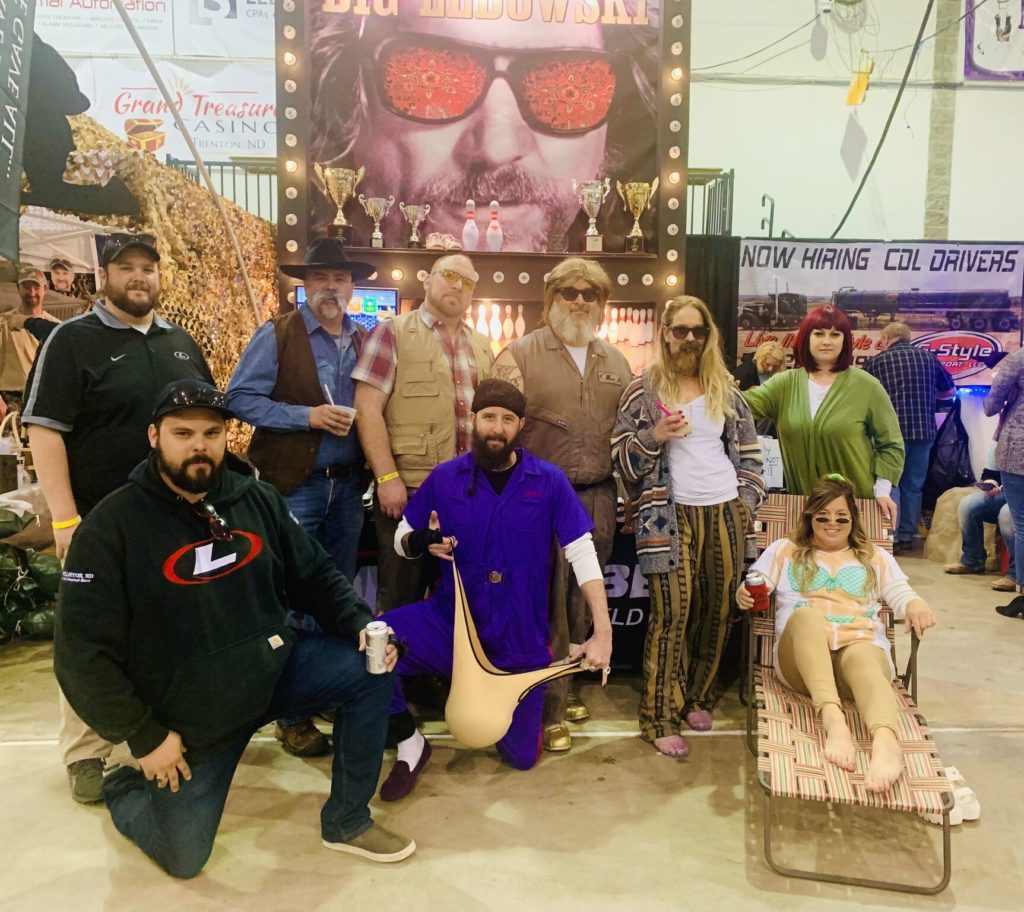
For sponsorship information on The Crude Life Morning Show Play Hard Work Hard, email studio@thecrudelife.com or click here.
Sponsors, Music and Other Show Notes
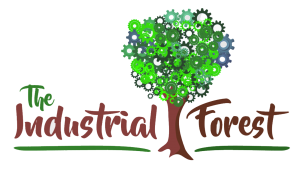
Studio Sponsor: The Industrial Forest
The Industrial Forest is a network of environmentally minded and socially conscious businesses that are using industrial innovations to build a network of sustainable forests across the United States.
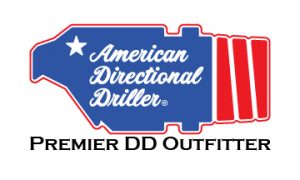
Weekly Sponsor: American Directional Driller
Especially designed for the American Directional Driller® to measure bottom hole assembly equipment up to 40 feet. As of release, this product is unmatched in the marketplace. This heavy-duty 40-foot tape measure has three measurement scales on an extra wide blade.
Both engineering scale (decimal feet) and imperial scale (inches / feet) are shown on the top side of the blade. The reverse side of the blade is metric for expat or international mobile assignments. There are 12.2 meters shown as 1,220 centimeters with highlighted markings every decimeter and meter. The smallest measurement unit shown is 100ths of feet, 16ths of inches, and 1 millimeter. This tape measure is Class II.
Click here to Purchase on Amazon

Weekly Sponsor: Maxwell’s Restaurant & Bar
Maxwell’s has been repeatedly recognized locally and nationally for its fine dining, warm hospitality, outstanding service and custom beverage selections.
Maxwell’s has been the recipient of the Wine Spectator Award of Excellence since 2012. The Award of Excellence is earned by establishments that offer a well-chosen selection of quality producers, along with a thematic match to the menu in both price and style with over 100 labels offered.
Maxwell’s seeks locally produced products whenever possible to bring its patrons the freshest ingredients as it supports local growers.

Phone Line Sponsor: Swan Energy, Inc. 866.539.0860

Studio Email and Inbox Sponsor: To Be Announced

Featured Music: Moody River Band
For guest, band or show topic requests, email studio@thecrudelife.com
Spread the word. Support the industry. Share the energy.
If you have a chance, check out The Crude Life Podcast!


